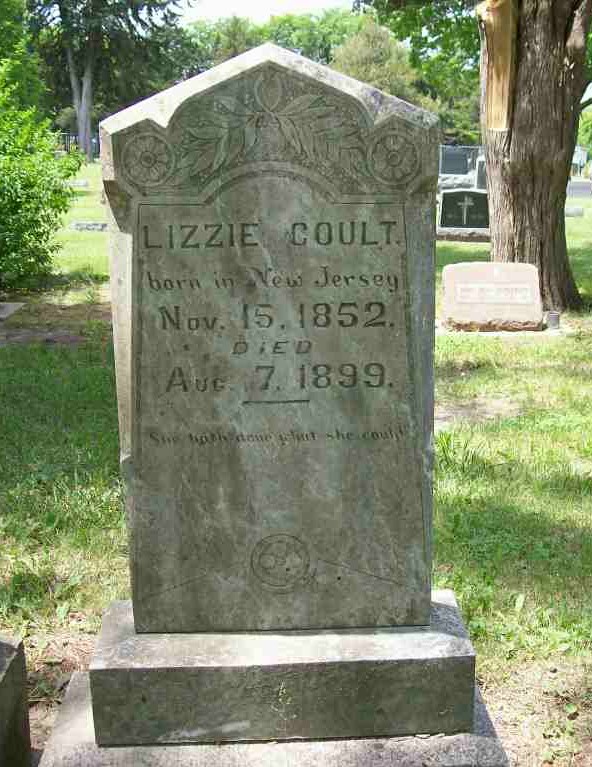by Kristine Schmucker, HCHM Curator
The next few months will be very busy at Harvey County Historical Museum & Archives. We will finally be seeing the results of a lot of behind the scenes work with the opening of the new exhibit, The Way We Worked: Serving Harvey County in the renovated Schroeder Gallery on September 8. As I write this, the empty cases stand ready for artifacts, photos and stories.
In preparation for this exhibit, a great deal of research has been completed to find stories of how people worked serving Harvey County in the past 100+ years. One of the first people that caught my eye was Miss Lizzie Coult.
In the 1887 Newton City Directory, she heavily advertised her business, the Bee Hive Bookstore at 520 Main. "Lizzie Coult keeps all kinds of books from the nickle novel to the finest edition of the classic poets and historians!" and "Buy your blanks, Opera Glasses, plain and fancy papeteries and standard books at the Bee Hive Book Store." Then, in the 1902 directory, there is nothing.
This made me curious. She appeared to be a single woman that owned a business in the late 1880s. Who was Miss Lizzie Coult? and what happened to her?
First, I checked the Greenwood Cemetery index that is in Archives, and got lucky. Lizzie Coult died August 7, 1899 and was buried in Greenwood Cemetery. With that information, I could go to the microfilm and look for an obituary. There on the front page, with a picture, the headline read, "Miss Lizzie Coult is Dead."
 |
| Picture from Weekly Kansan Republican, August 11, 1899 |
The sub-headline of the article paid her high praise.
"A Christian, Business Woman Whose Life Was Full of Earnest, Devoted, Self-Sacrificing Labor for Others Has Passed to Her Reward."
So, who was this women that received such high praise from those that knew her?
Lizzie Coult was born November 15, 1852 in Sussex County, New Jersey.The Coult family moved to Kansas in 1878 and settled near Neosho Rapids. By 1880, Miss Coult was teaching school near Emporia in the Garfield School. In 1885, Miss Lizzie Coult arrived in Newton with her mother, Jane, and purchased the Bee Hive Bookstore.
 |
| Bookmark from the Bee Hive Book Store |
According to the 1887 directory she had two employees; Miss Jennie White held the position of saleslady and Charles Coult worked as a clerk. She sold the Bee Hive Bookstore to H.F. Toews in 1894. Miss Coult continued to work for Toews as a bookkeeper until her death.
Between 1894 and her death in 1899, she focused on her work in the Presbyterian Church and was a leader in the Kansas Christian Endeavor Union. She, with Rev. W.L. Garges, published the Kansas Endeavor, a newsletter for the Kansas Christian Endeavor Union. She was also known state-wide for her work with young people through the related organization, Junior Christian Endeavor. She contributed articles to the Presbyterian publication, The Church at Home and Abroad, Vol 21 (1897).
Lizzie Coult died unexpectedly August 7, 1899, at the age of 47 of "quick consumption." In tribute to her years of dedication to the youth of the Presbyterian Church, children placed little bouquets of flowers under the casket and the Junior Choir sang.
She was buried in Greenwood Cemetery, Newton with the inscription "She hath done what she could."
 |
Greenwood Cemetery
Photo by Julian Wall |
Information from The Weekly Kansan Republican, August 11, 1899, p.1.

























